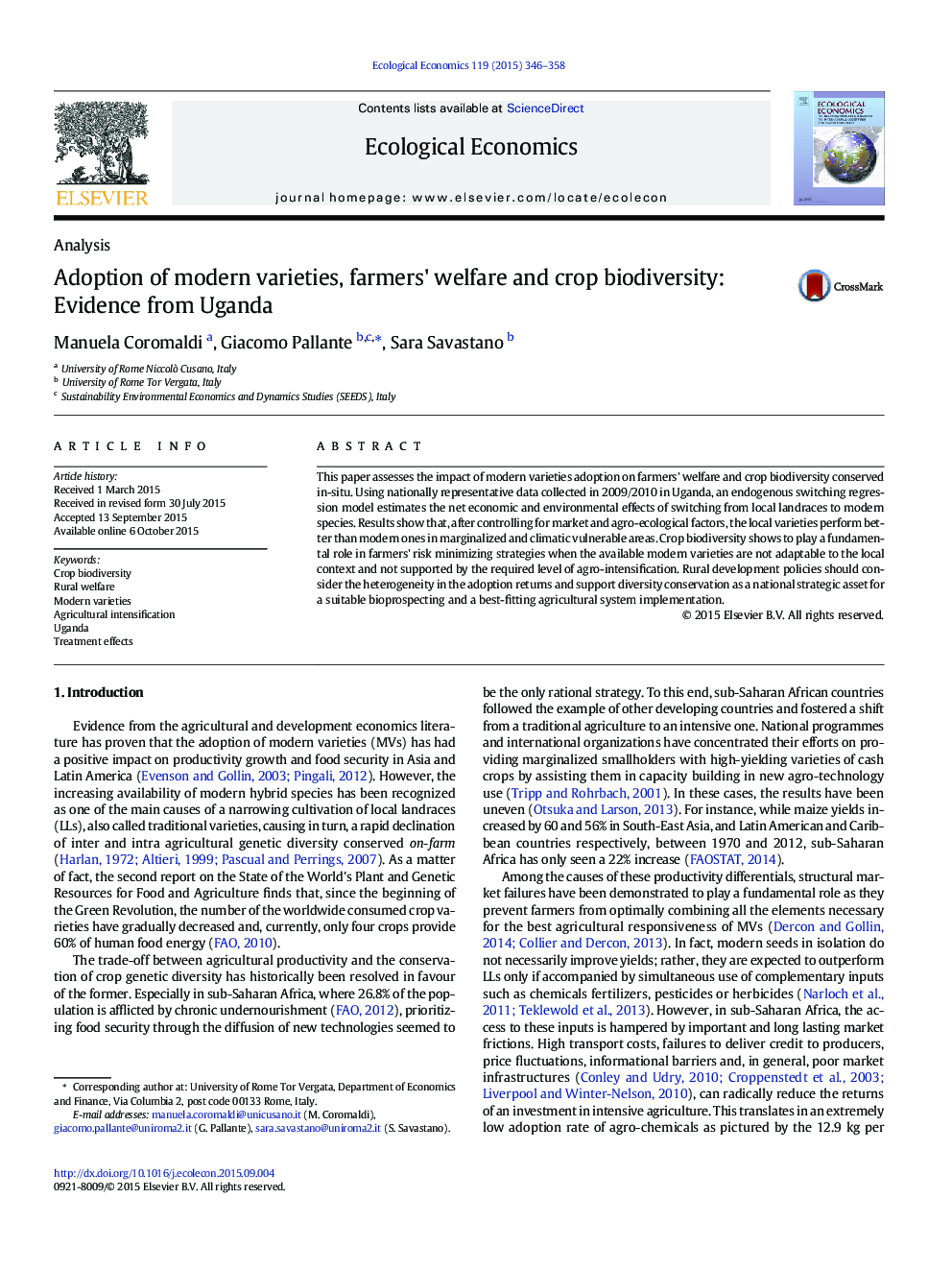| کد مقاله | کد نشریه | سال انتشار | مقاله انگلیسی | نسخه تمام متن |
|---|---|---|---|---|
| 5049254 | 1476360 | 2015 | 13 صفحه PDF | دانلود رایگان |
- Modern varieties adoption is recognized as one of the main driver of crop diversity reduction.
- Cultivation of local landraces provides economic benefits and resistance to climate shocks in Uganda.
- Agricultural intensification has a limited impact on welfare from not adopting modern varieties.
- Benefits from adoption depend on good soil quality endowments and access to markets.
- Conservation of crop diversity is a national strategic asset for bioprospecting and best-fitting modern agriculture.
This paper assesses the impact of modern varieties adoption on farmers' welfare and crop biodiversity conserved in-situ. Using nationally representative data collected in 2009/2010 in Uganda, an endogenous switching regression model estimates the net economic and environmental effects of switching from local landraces to modern species. Results show that, after controlling for market and agro-ecological factors, the local varieties perform better than modern ones in marginalized and climatic vulnerable areas. Crop biodiversity shows to play a fundamental role in farmers' risk minimizing strategies when the available modern varieties are not adaptable to the local context and not supported by the required level of agro-intensification. Rural development policies should consider the heterogeneity in the adoption returns and support diversity conservation as a national strategic asset for a suitable bioprospecting and a best-fitting agricultural system implementation.
Journal: Ecological Economics - Volume 119, November 2015, Pages 346-358
